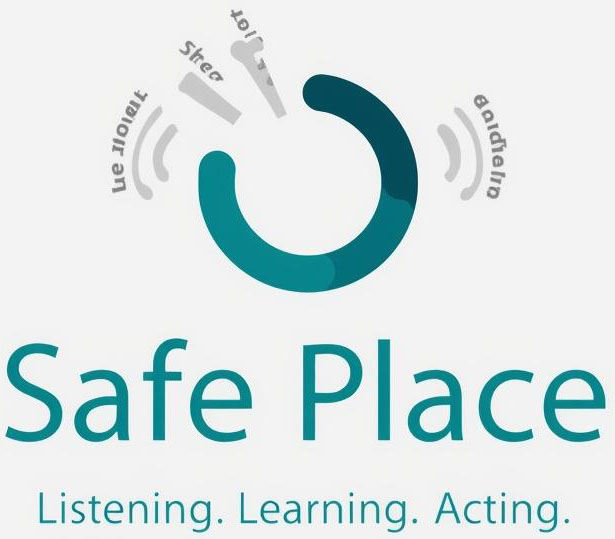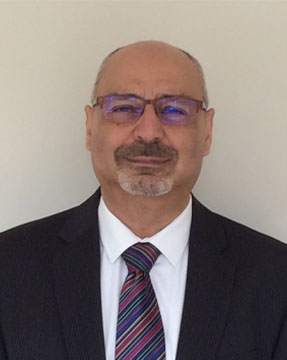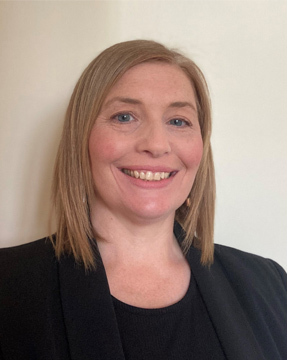ICIPS Safe Place
A safe place to be heard when serious concerns go unheard.

A safe place to be heard when serious concerns go unheard.

CI Everywhere: How all sectors benefit
Enact Solutions are delivering a key note speech, that considers how learning from the past can improve the future and the role that story telling can play.
Enact are a drama-based training provider that combines professional actors with subject matter experts to deliver powerful and effective learning experiences. Our approach allows people to experience, feel, reflect and positively change. Through experiential learning they enable safe skills practice to embed and sustain learning.
I stumbled into politics after enjoying my retirement from working in a college for 17 years. I was asked to do a favour for a friend and five years later I find myself as Leader of East Riding Council, the first ever female leader of the council.
Before I went into education I ran my own business, a ladies dress shop, however I could see that the economic climate was changing and I needed to keep a roof over my children's head, so I attended college one afternoon per week and gained a qualification to teach adult education. Roll on a few years and I was told to enable to keep my job I have to do a degree in education, at the time I was employed full time, had two children to look after and had to study, which if I am honest doesn't come easy to me, I am more hands on and less academic!! Once I qualified, I was determined I would never put myself through that again. However, after a few more years I decided I wanted to do more in the college and yes here we go again, I had to do a degree in leadership and management.
I have done various jobs in my life - working in a couple of factories, living and working in Jesey as a holiday rep, running a travel agents, driving a lorry delivering sand and gravel and washing up in a cafe (which, when needed I still do!)
I love my current role and really enjoy working alongside and supporting people in the East Riding of Yorkshire. I also spend time in Westminster lobbying Government on issues such as more SEND funding, speaking to the Energy Minister about issues on the Humber (the largest emitters of carbon in the country), as well as many other issues affecting the East Riding.

Prof Sanjay Bhasin is an accredited senior Operational Excellence pracademic depicting high-ranking management positions within the industrial, education and the public sector. He recently held the position of “Head of Continuous Improvement” for the Probation Service across England and Wales which predominantly incorporated steering the organisation towards a higher level of C.I maturity. Presently as Programme Director at Buckingham University, his focus centres upon the professional doctorate. He is the author of various articles published in reputable international journals alongside two books and is a regular key-note speaker at international conferences. He is an Editorial Board Member for the: “Journal of Applied Continuous Improvement” and “American Journal of Operations Management and Information Systems.”He is a fellow of the:
His current area of research focuses upon operational excellence maturity and the necessary cultural and leadership necessary to retain momentum on the designated journey.'

Chris started his career in 1991 wearing wellington boots to protect the aquatic environment. Subsequent less muddy roles followed in customer service, business planning, and performance management. From 2006 Chris’ career became focused on supporting change at all levels and he now works as a senior consultant within the Defra group Continuous Improvement Service. He takes a multi-disciplinary approach that draws on practice from Lean, Six Sigma, Agile, Business Change and any other source of practice that has the potential to be helpful in enabling sustainable improvements. He is particularly interested in the people side of change. Chris is also a part-time doctoral research student exploring the enablement of systems thinking competencies in public service. His research builds on the problem solving inherent in continuous improvement by adding know-why and know-how to deliver better outcomes from complex problematical situations (a.k.a. messes, wicked problems, and super-wicked problems).
This presentation is delivered in two parts. The first part concerns understanding how a public service organisation, or a part thereof, can work with complex challenges, its appetite to become more capable, and the potential that capability might grow into. The result is a unique profile. This session will present a research framework developed to guide the exploration necessary to build that profile. The framework draws on the conceptual models of the adaptive cycle and panarchy; both originally devised to better explain adaptation in ecological systems, and that have since proved helpful in the context of complex adaptive systems more generally, including organisations.
The second part of the presentation concerns the use of this unique profile to guide subtle, dispersed, and coherent influences that enable growth into that complexity capability potential. This may be achieved in ways not dissimilar to Aikido’s ‘harmony of spirit’, in so far as the redirection of existing momentum, and with minimal additional energy of its own. We’ll be looking at how this Aikido is taking shape in Defra, and how technology is helping to introduce sophisticated ideas to people in innovative ways that don’t over-simplify, nor overwhelm.
In this workshop we’ll consider how the adaptive cycle might help us better understand ourselves, and the individuals, teams, departments, and organisations we work with. After a brief explanation of the related concepts of the adaptive cycle and panarchy, participants will work individually, and then in small groups, to explore how these ideas might be useful in their practice of continuous improvement.
Dr Rachael Chapman is a part-time Assistant Professor in International Relations and Politics, Department of Social Sciences at Northumbria University. Her main research and scholarly interests focus on governance in local policy-making and public service delivery, covering key issues such as: partnership working between local authorities and charities, public participation, political representation, accountability and legitimacy. She is currently leading a £188k British Academy funded research project examining urban green space governance involving the transfer of park management from a local authority to a charity or a local authority receiving support from a charity with fundraising and volunteering effort for parks. To date, Rachael has published 11 peer-reviewed journal articles/book chapters, and an excess of 10 research reports. Rachael has undertaken numerous research, consultancy and evaluation projects on a range of topics for clients including: The Department for Local Government and Communities, The Home Office, Department of Health, local authorities, and the Local Government Association. She has received awards from the Political Studies Association and Northumbria University for her experiential, real world teaching on her module Theories and Practices of Democracy.

Unlocking the power of digital to deliver proactive and preventative approaches across health and social care
Emma Garland has been involved in the field of adult social care for over six years. Her background is in designing and implementing new delivery models, which has been the passion that drives her toward helping organisations deliver better outcomes for people. She has been a Principal Consultant with Channel 3 Consulting for just over 18 months, where she has worked on several programmes of work focused on delivering digital at scale. This work has seen her involvement in the national DiSC programme with integrated care systems, as well as support to several local authorities, helping to them to make a step change towards a more proactive and preventative model of adult social care. Emma joined Channel 3 from ADASS, having previously held several local government and central government roles. Her experience spans strategic-level change, social care transformation, and building effective partnerships.